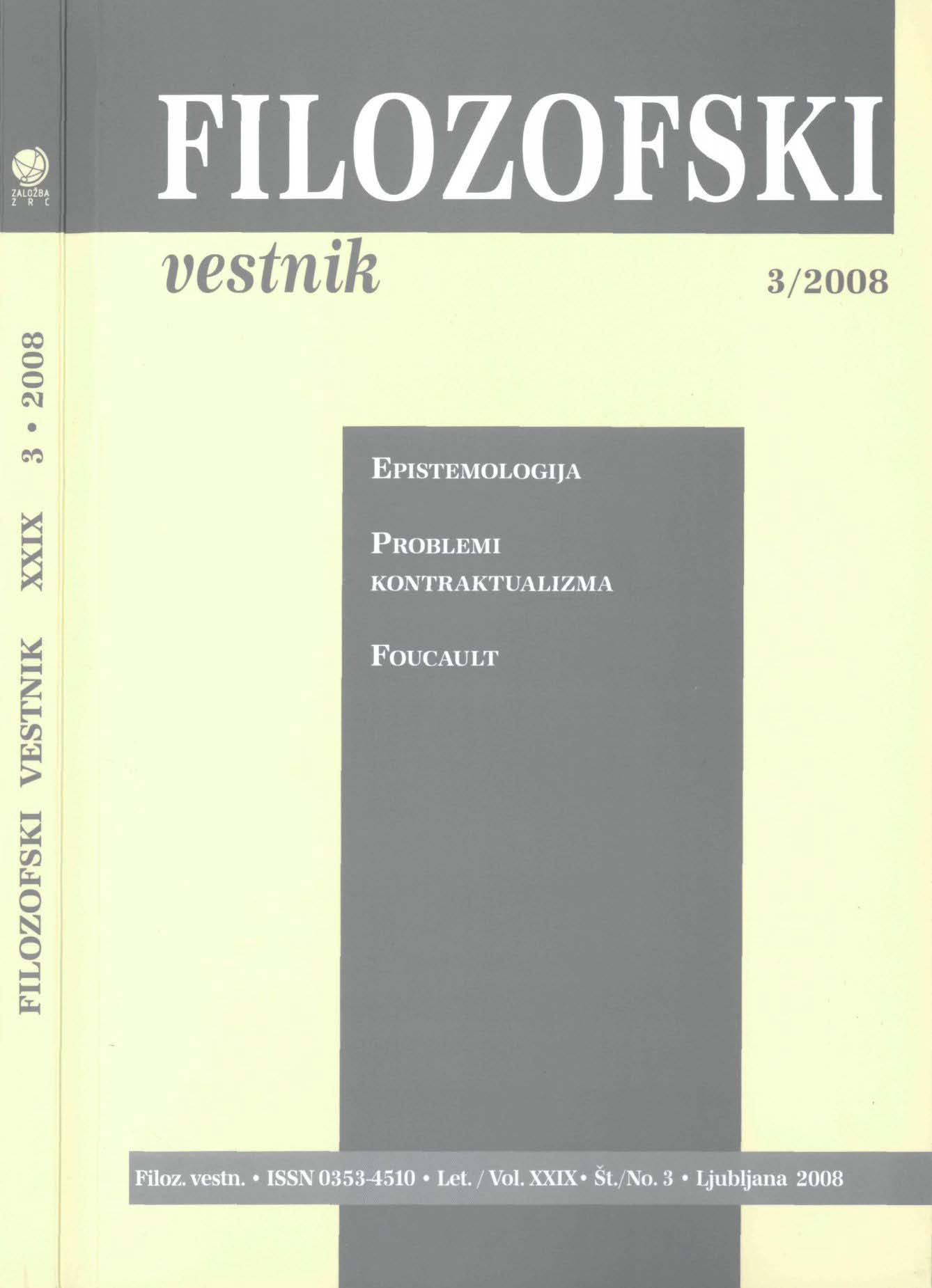Etopoetska vednost: Seneka in Foucault
Ključne besede:
etopoetska vednost, etika, Foucault, Seneka, skrb zasePovzetek
Pojem etopoetske vednosti, torej vednosti, ki ni sama sebi namen, temveč je sposobna generirati posameznikov ethos, način življenja, izvira iz antike, ponovno pa ga v svojem poznem delu obudi Foucault. Kot poudarja Foucault, ima etične učinke lahko tudi navidez »objektivna« vednost. Cilj pričujočega sestavka je skozi paralelno branje Seneke in Foucaulta pokazati, kako njuni spisi funkcionirajo prav kot tovrstna vednost, oz. kako na »hrbtni strani«, brez eksplicitnega opozorila, lahko prispevajo k določeni etični drži. Tako se Seneka v svojih Vprašanjih narave posveča deskripciji narave, vendar pa prav skoznjo posameznik lahko dobi uvid v lastno mesto v svetu. Na podoben način Foucault skozi navidez »zgodovinopisna« zgodnja dela predstavi delovanje diskurzivnih in nediskurzivnih praks, v katerem ima domnevno avtonomni subjekt le majhno vlogo. Šele tovrstni posredni prikaz subjektove pozicije v svetu pa temu omogoči zasesti strateško mesto, s katerega se lahko zoperstavi temu, česar proizvod je.Prenosi
Podatki o prenosih še niso na voljo.
Prenosi
Objavljeno
2016-03-08
Kako citirati
Strniša, E. (2016). Etopoetska vednost: Seneka in Foucault. Filozofski Vestnik, 29(3). Pridobljeno od https://ojs.zrc-sazu.si/filozofski-vestnik/article/view/4441
Številka
Rubrike
Foucault
Licenca
Avtorji jamčijo, da je delo njihova avtorska stvaritev, da v njem niso kršene avtorske pravice tretjih oseb ali kake druge pravice. V primeru zahtevkov tretjih oseb se avtorji zavezujejo, da bodo varovali interese založnika ter da bodo povrnili morebitno škodo.
Podrobneje v rubriki: Prispevki





